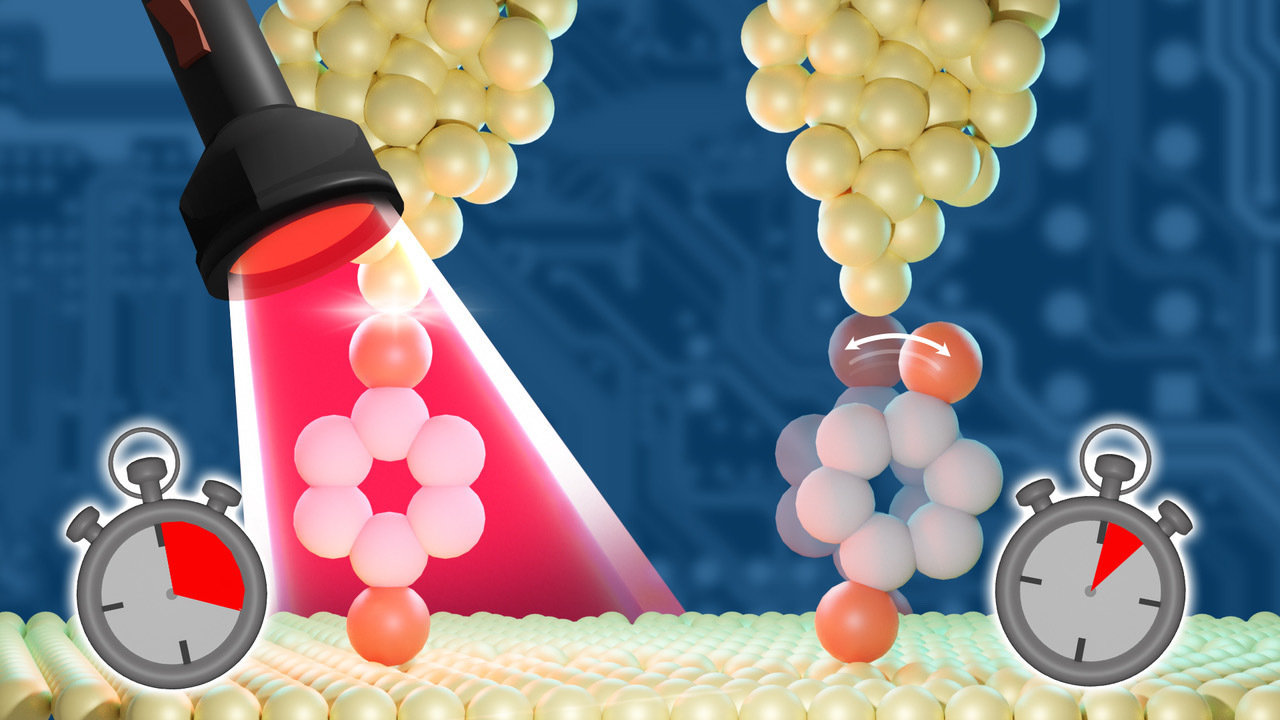Albert C. Aragonès has been awarded the La Caixa junior leader fellowship 3/3
Single-molecule detection is essential for investigating individual molecules and processes at the molecular level with immense potential for physics, chemistry, materials, and life sciences. Single-molecule detection methods based on electrical readouts in nanogaps are the most attractive. They allow obtaining single-molecule responses in real-time without considering the ensemble effect and without the need for labelling. Unfortunately, single-molecule electrical detection approaches have very limited detection timescales because the electrical contacts of single-molecules last a fraction of a millisecond. Undoubtedly, single-molecule detection urgently needs the development of longer detection timescales, and it is my main research goal.
One feasible way to secure molecules in a specific location is plasmonic trapping. It takes advantage of metallic nanostructures to confine, and hence enhance, the electromagnetic field far beyond the diffraction limit, giving rise to an incredibly strong near-field gradient capable of capturing molecules. Recently, I have developed a unique plasmon-assisted single-molecule electric detection platform and my current project will unveil the main interfacial molecule|electrode effects on plasmonic trapping.

More information: La Caixa Junior Leader postdoctoral fellowships – Incoming
